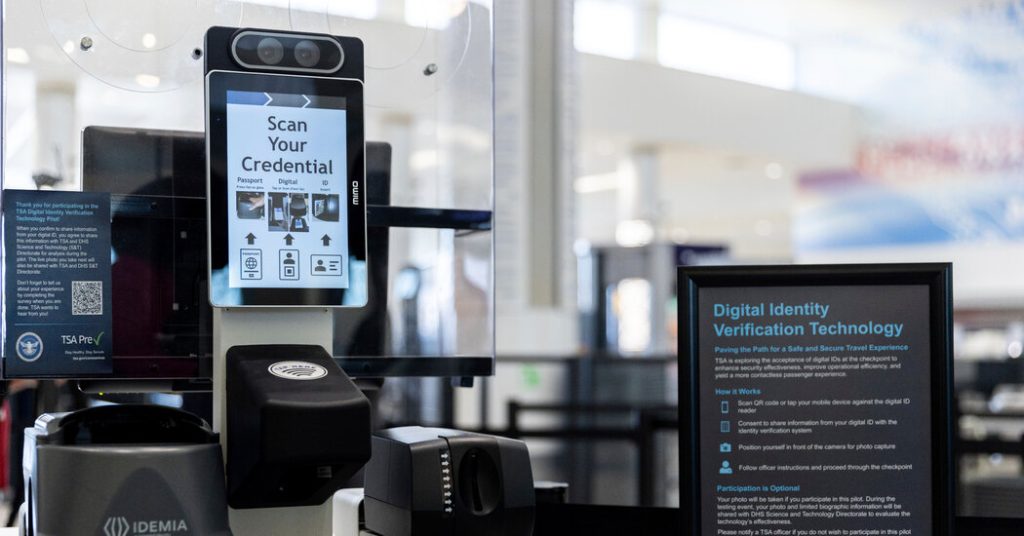A bipartisan group of senators is pushing to halt the expansion of facial recognition technology at airports in the United States and restrict its use as part of the Federal Aviation Administration reauthorization bill currently in Congress. Senators Jeff Merkley and John Kennedy are proposing to block the technology’s expansion until 2027 and require clear opt-out options for passengers. The proposal is set to be voted on before the bill is passed, pitting privacy advocates against consumer and industry groups who argue that the technology can reduce wait times and increase safety.
The Federal Aviation Administration plans to expand facial recognition technology to over 430 airports, replacing physical identification cards with photographs matched to a government database. Concerns have been raised by Senator Merkley, who encountered the technology at an airport near Washington and felt that passengers are pressured to comply. He insists on his right to decline the facial scan, but airport security workers have pushed back, creating anxiety among travelers about being arrested.
The U.S. Travel Association is alarmed by the amendment, arguing that it would create chaos for travelers and result in increased wait times at security lines. They claim that passengers could wait an additional 120 million hours in lines each year if facial recognition software is not expanded. The association also warns of national security risks if the technology is not utilized. However, Senator Merkley disputes these claims, highlighting that his amendment only aims to maintain the current state of affairs and that Congress should address the issue.
Mr. Merkley’s focus on facial recognition technology stems from civil liberties concerns, including the need for consent before taking someone’s photograph and the potential misuse of a growing database of Americans’ faces by the government. He also raises concerns about the technology’s accuracy and error rates, linking it to his broader concerns about government surveillance and tracking of individuals. A bipartisan group of senators, including Mr. Merkley and Mr. Kennedy, have sent a letter outlining these concerns and calling for strong congressional oversight before the technology is further developed.
Senator Kennedy expresses concerns about potential abuse of data by government workers after scanning millions of faces each day, warning of the risk of bureaucrats hoarding biometric data without explicit permission. Lisa Gilbert of Public Citizen, a progressive group, argues that the privacy and data usage implications of facial recognition technology are not sufficiently addressed. She questions claims that the technology enhances safety and efficiency, noting the lack of evidence to support these benefits. The push to restrict the technology’s expansion reflects a growing bipartisan concern about privacy and civil liberties in the context of increasing surveillance and data collection practices.


